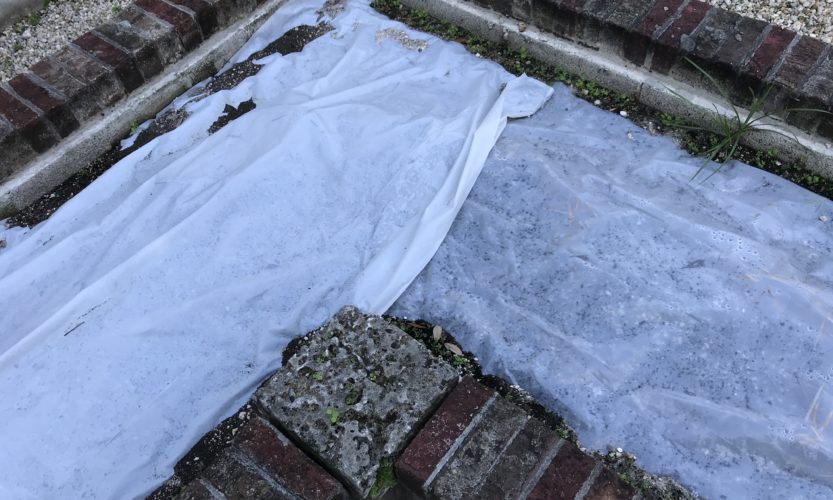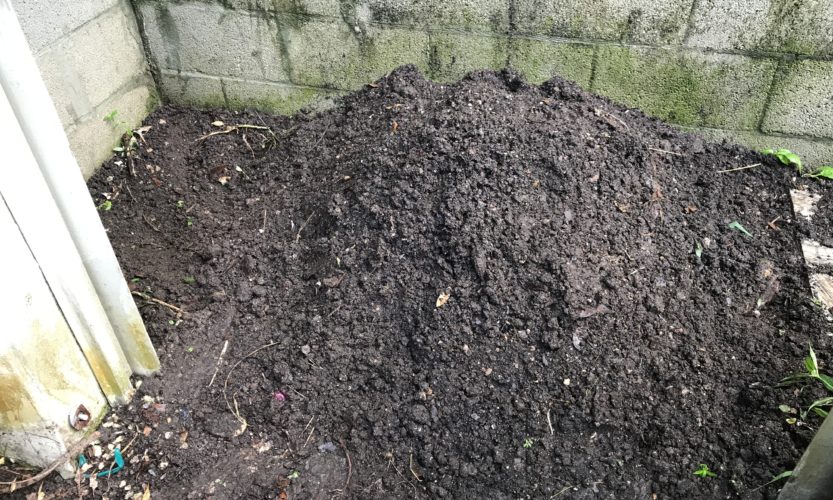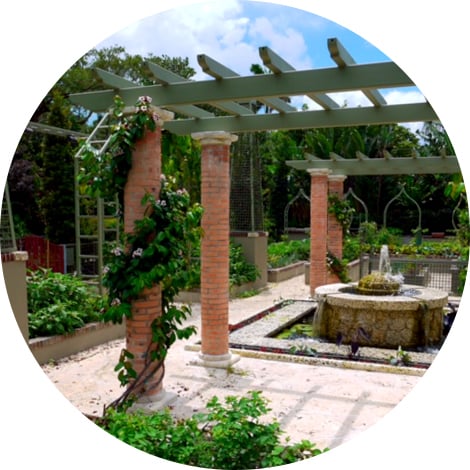Fall Bed Prep

As another regular growing season (ie, fall-winter-spring) is winding down, we are beginning our fall bed prep. Don’t get me wrong, we still have some lingering harvests to enjoy – chard, onions, kale, collards, cucumbers and carrots, bok choy, celery & celeriac, French sorrel, and a nice variety of herbs. (We get less sun than a typical South Florida vegetable garden, which extends our harvest in the late Spring.) We will also be enjoying a few heat tolerant crops throughout the summer – hot peppers, eggplant, sweet potatoes, bok choy (“joy choi” in the summer) and okra. We do not plant a large variety in the summer as we have found over the years that a)crop usage is minimal for the effort they take to grow and b)keeping up with the insects on new plantings in our summer climate is nearly impossible. It is so darn hot to be battling insects out there. And we don’t want to cultivate nonbeneficial pests waiting in the soil for our fall crops either!
Compost It!

Compost is one of the main keys to a healthy, thriving organic garden. We used to be able to buy some really incredible ready-made organic soil, but no more. So a few years back, we set out to learn how to create our own, and found how essential it was to produce a steady supply of compost! Our two main resources, where we learned the most, was (my gardening bible!) How to Grow More Vegetables by John Jeavons, and the University of Florida’s Agricultural Extension’s resources, especially this article: Compost Tips for the Home Gardener. We learned that composting isn’t about constantly throwing your scraps into a pile whenever you had some; it is a careful layering technique in a designated area with specific dimensions and scheduled maintenance. We had a lot to learn, but now that we’ve got the hang of it, we enjoy the whole routine (although the saved-up kitchen scraps can be nasty!) and especially using the compost to enrich our vegetable garden – nothing like that rich, dark compost that we know is chock full of nutrients!
